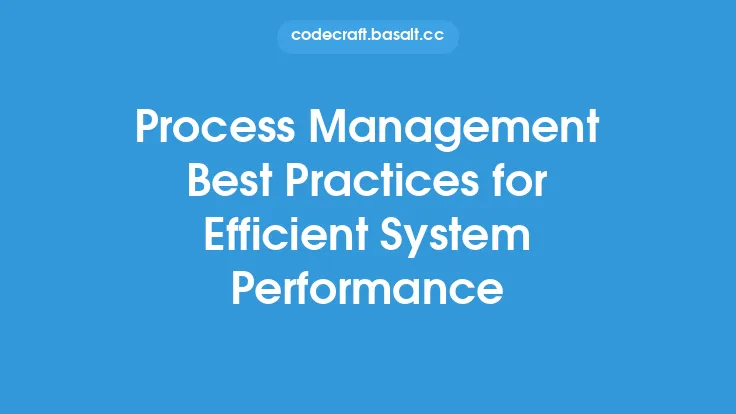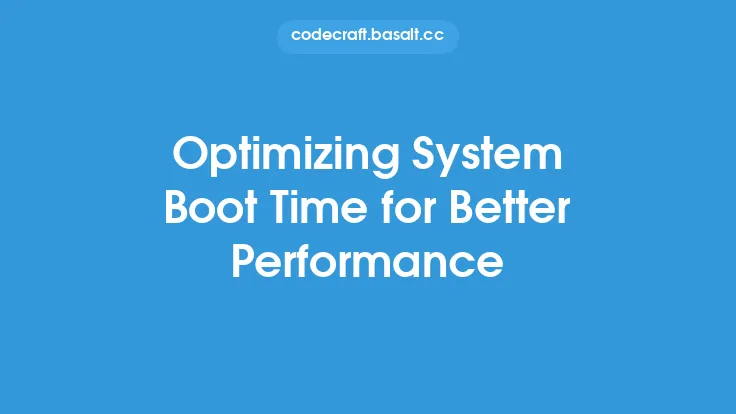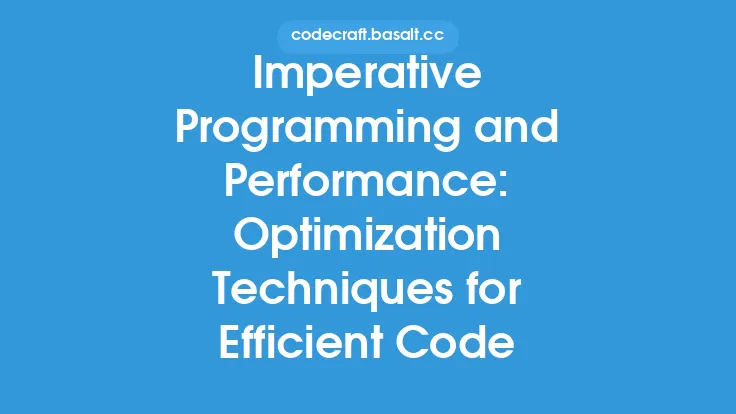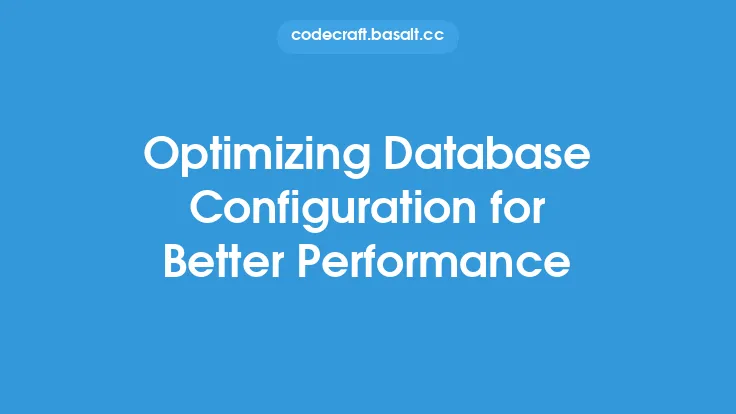When it comes to ensuring efficient system performance, one crucial aspect that cannot be overlooked is memory usage optimization. Memory, being a vital resource, plays a central role in the execution of programs and the overall functioning of a computer system. Optimizing memory usage is essential to prevent memory bottlenecks, reduce the risk of system crashes, and improve the responsiveness and throughput of the system. In this article, we will delve into the strategies and techniques for optimizing memory usage, exploring both the theoretical foundations and practical applications.
Introduction to Memory Optimization
Memory optimization involves a set of techniques and strategies aimed at minimizing memory usage while maximizing system performance. This can be achieved through efficient memory allocation, deallocation, and management practices. At the heart of memory optimization lies the understanding of how memory is utilized by the system and applications. This includes knowledge of memory allocation algorithms, data structures, and programming practices that influence memory usage. By optimizing memory usage, systems can handle more concurrent tasks, reduce latency, and improve overall user experience.
Understanding Memory Leaks and Fragmentation
Two significant challenges in memory management are memory leaks and fragmentation. A memory leak occurs when a program allocates memory but fails to release it back to the system, even after it is no longer needed. Over time, memory leaks can consume a significant portion of the system's memory, leading to performance degradation. Memory fragmentation, on the other hand, refers to the condition where free memory is broken into small, non-contiguous blocks, making it difficult to allocate large blocks of memory. Both memory leaks and fragmentation can severely impact system performance and must be addressed through proper memory management techniques.
Efficient Memory Allocation Strategies
Efficient memory allocation is critical for optimizing memory usage. This involves selecting the appropriate memory allocation algorithm based on the application's requirements. For instance, algorithms like buddy memory allocation are efficient for managing large pools of memory by minimizing fragmentation. Additionally, techniques such as memory pooling, where a large block of memory is allocated at the start and subdivided as needed, can reduce the overhead associated with frequent allocations and deallocations. Understanding the trade-offs between different allocation strategies is key to implementing an efficient memory management system.
Role of Compiler Optimizations
Compiler optimizations play a significant role in memory usage optimization. Modern compilers offer various optimizations that can reduce memory usage, such as dead code elimination, register allocation, and instruction selection. These optimizations can significantly reduce the memory footprint of an application by eliminating unnecessary code and data. Furthermore, compilers can also optimize memory access patterns, reducing the number of memory accesses and thus improving performance. By leveraging compiler optimizations, developers can write more efficient code without manually optimizing every detail.
Operating System Support for Memory Optimization
Operating systems provide various mechanisms to support memory optimization. For example, many operating systems implement demand paging, where pages of memory are loaded into physical RAM only when they are actually needed. This technique can significantly reduce memory usage by avoiding the loading of unused pages. Additionally, operating systems may provide system calls or APIs that allow applications to manage memory more efficiently, such as allocating memory in large blocks or locking memory pages to prevent paging out. Understanding and utilizing these operating system features can help developers optimize memory usage in their applications.
Best Practices for Developers
Developers can follow several best practices to optimize memory usage in their applications. First, they should avoid unnecessary memory allocations, especially in performance-critical code paths. Using stack-based variables instead of dynamically allocated memory can reduce memory allocation overhead. Second, developers should ensure that all allocated memory is properly deallocated when no longer needed to prevent memory leaks. Third, using efficient data structures and algorithms that minimize memory usage can also contribute to better memory optimization. Finally, profiling and testing applications under various loads can help identify memory bottlenecks and guide optimization efforts.
Tools and Techniques for Memory Optimization
Several tools and techniques are available to aid in memory optimization. Memory profiling tools can analyze an application's memory usage, identifying leaks, fragmentation, and other issues. These tools can provide detailed insights into memory allocation patterns, helping developers pinpoint areas for improvement. Additionally, techniques such as memory debugging and leak detection can be used to identify and fix memory-related bugs. For complex systems, simulation and modeling tools can be used to predict and optimize memory usage under different scenarios, allowing for more proactive memory management strategies.
Conclusion
Optimizing memory usage is a critical aspect of ensuring efficient system performance. By understanding the principles of memory management, recognizing the challenges of memory leaks and fragmentation, and applying efficient memory allocation strategies, developers and system administrators can significantly improve system responsiveness and throughput. Leveraging compiler optimizations, operating system support, and following best practices for memory management are also essential for achieving optimal memory usage. As systems continue to evolve and become more complex, the importance of memory optimization will only continue to grow, making it a fundamental skill for anyone involved in system development and maintenance.





